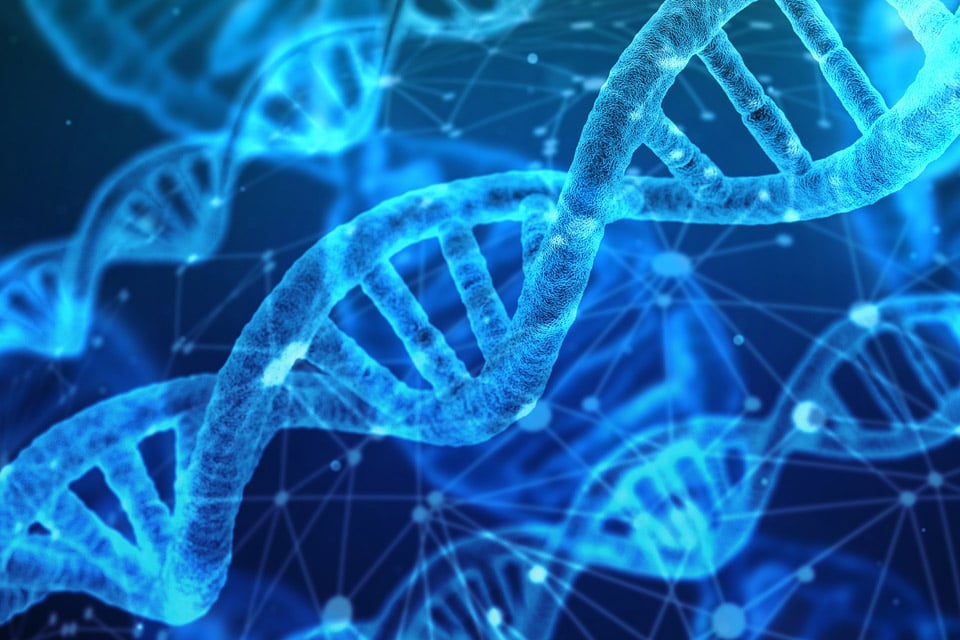Dr. Joe Tafur has explored some of the most bizarre places on Earth and in the human mind. His journeys in medicine took him deep into the Amazon rainforest, where he studied the Shipibo shamanic tradition of ayahuasca healing. But today, he is following his curiosity in spiritual healing to the strangest frontier yet—the human gene.
The Modern Spirit Epigenetics Project, which Tafur is helping spearhead, is currently raising money for groundbreaking laboratory research to understand how our body’s biochemistry affects our mental and spiritual health. Specifically, they will analyze saliva samples collected from participants in ongoing clinical trials for MDMA-assisted psychotherapy for Post-traumatic stress disorder (PTSD).
“This will involve collecting saliva samples of people going through the psychotherapy trial,” Tafur said. “We’re looking at different time intervals before, during, and after the treatment process to look for signs of biochemical change. People are reporting these really impressive shifts in their recovery where nothing else was helping them, but there’s little understanding of why.”
Modern Spirit wants to study the biology of people who have benefited from MDMA treatment in order to understand how the drug experience and psychotherapy interact with their bodies on the most fundamental level.
This field of study, called epigenetics, looks at how environmental factors affect people’s bodies and minds over time. Everything in our bodies starts with DNA—the genetic code or ‘instructions’ in our cells that dictate, among other things, how proteins are formed. We have about 20,000 different DNA sequences, or genes, describing protein production. Gene expression is a process through which cells respond to changes in our environment, allowing them to control when proteins are made and how many are made.
Everything that happens in our life causes chemical changes that ‘switch on or off’ certain genes or make them behave differently. These epigenetic changes are what make us physiologically and psychologically unique, and can even be inherited by our children.
Tafur is especially interested in how experiencing trauma causes epigenetic change—and how psychedelic healing, psychotherapy, and other spiritual practices like shamanism or meditation can cause positive epigenetic change. “This project is dedicated to demonstrating the value of spiritual healing in modern healthcare,” Tafur said.
He continued, “My experiences with patients and the guidance I received from plant medicines showed me that epigenetics would help us understand the mechanism of spiritual and emotional healing facilitated by psychedelic medicine.” It is important to show a physical measure of healing, he said, because we only understand how patients heal from PTSD based on their self-reports or from doctors’ observations.
Tafur noted that the research need not be restricted to just MDMA treatment for PTSD, and in fact he hopes his protocol can be expanded to study other psychedelic drugs and mental illnesses. “But we realized it was wiser right now to pursue a collaboration with the Multidisciplinary Association for Psychedelic Studies (MAPS) who are sponsoring the MDMA trials because their study is proceeding on a large scale and they have a lot of data. The impact of their work is already so promising, so it seemed like a great area to focus on.”
We know that PTSD can be measured by biochemical changes in the body precipitated by traumatic events, Tafur explained. For example, a change in our genetic expression may affect our cells’ cortisol receptors. These respond to the cortisol hormone, which regulates stress and our ‘fight or flight’ response. Trauma may cause this and other systems in the body to behave abnormally.
Tafur explained that the impacts of trauma may even be passed down to children, a phenomenon known as intergenerational trauma. As an example, he cited a study by Brian G. Dias and Kerry J. Ressler that examined the mouse olfactory system. The researchers conditioned mice to react fearfully to a sugary smell (acetophenone) by shocking them.
The offspring of the mice showed a similar fearful reaction to this smell—as did the next generation of offspring. The researchers observed that the two younger generations each had a greater mass of neurons and olfactory regions responding to the smell.
But if our environments can harm and change us, they can also help us heal and repair damage. Tafur explained that our bodies and minds can be ‘re-wired’ by different factors, leading to positive change.
“Psychedelic medicines facilitate the ‘deconditioning process’ that makes psychotherapy more effective,” Tafur said. “I suspect that’s related to some kind of epigenetic process. We know that epigenetics are affected by childhood trauma, a lack of love, maternal care, altered states of consciousness like meditation, and psychotherapy. It’s a very sensitive part of our biochemical machinery that seems to be impacted by strong emotional experiences.”
Tafur and his research team, based at the University of Southern California, are currently raising money to finance the laboratory analysis. “We primarily want to look for things like biomolecular ‘tags’ placed on the DNA strand or on the protein that packages the strand,” he said. The analysis can also examine changes to the cortisol receptor and associated regions, or to any other parts of the cell disturbed by trauma.
Tafur hopes that his findings will help psychedelic treatments reach a wider audience. “I think understanding the physical basis of these emotional changes in our bodies will help this treatment gain more traction within our larger society that’s focused on biochemical mechanisms.
“This will also help us start to examine the impact of all kinds of techniques, like meditation, somatic experience therapy, even breathwork—we could explore how all of these practices shift our epigenetics and relieve trauma.”











